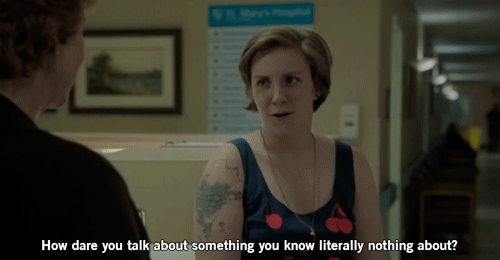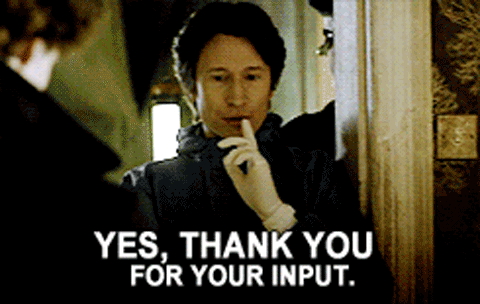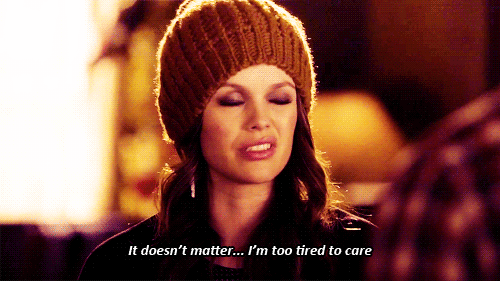Unsolicited comments are unfortunately a fact of life for most people with a chronic health condition. Today I want to discuss a couple of different viewpoints to keep in mind when dealing with these remarks.
One issue that comes up time and time again when speaking to other people with narcolepsy (and people with chronic health conditions in general) is the annoying things that people will always say to you regarding your condition and their personal opinions on how you should be treating it.
Many of us have been told by friends, relatives and co-workers about how we should be doing more to combat our condition, or that there is some magical cure out there that we are not aware of. People with no knowledge of narcolepsy whatsoever will claim that their uncles girlfriend “had” narcolepsy but “cured” it using homeopathy or acupuncture, or tell you about an article they read that said a paleo/gluten free/low carb diet will take away all narcolepsy symptoms.
Other common complaints revolve around things like “thinking positive”, “doing more exercise”, “meditating” or “trying supplement xxx”.
 In many ways, I agree that these comments can be ignorant and offensive. First of all, they most often come from people who actually know nothing about narcolepsy, how it is caused or treated, or even how it actually affects your life. They also don’t know anything about your personal medical history and how other conditions or ailments may be impacting your ability to follow their advice.
In many ways, I agree that these comments can be ignorant and offensive. First of all, they most often come from people who actually know nothing about narcolepsy, how it is caused or treated, or even how it actually affects your life. They also don’t know anything about your personal medical history and how other conditions or ailments may be impacting your ability to follow their advice.
I do often find these comments very patronising. As a person with narcolepsy, a condition that affects me every day of my life, you can be sure that if there is a treatment out there (no matter how dubious) I will have probably already heard about it, researched it, decided whether it seemed legitimate, and tried it for myself to see if it made a difference. I do not sit around just complaining about my condition without seeking new information and solutions.
I do also find it a bit rude of people to say these things as making unsolicited comments about what I should or shouldn’t be doing with my body is a bit invasive, especially coming from someone who knows nothing about it. From some people I do feel that there is an implication that I should be doing more somehow, that I am causing my own problems in life through inaction, and this is the most offensive idea of them all.
As we all know, narcolepsy is a chronic condition. As we currently stand in terms of research and treatments there is no cure. No amount of running or yoga or supplements or praying or magic beans are going to change that fact.
 That may sound like the end of the story… However, I would like to stress that just because these suggestions are often made by people who are uninformed, doesn’t mean that the ideas themselves should be ignored. I myself have seen big improvements to my narcolepsy symptoms and ability to cope with them through lifestyle changes such as eating healthier, increasing exercise and actively maintaining my positive mental health*.
That may sound like the end of the story… However, I would like to stress that just because these suggestions are often made by people who are uninformed, doesn’t mean that the ideas themselves should be ignored. I myself have seen big improvements to my narcolepsy symptoms and ability to cope with them through lifestyle changes such as eating healthier, increasing exercise and actively maintaining my positive mental health*.
My overarching theory on these things is that the healthier you are, the easier it will be to deal with narcolepsy. Just as any other person can benefit from things like exercise and positive thinking, so can PWN – but we are already starting with a disadvantage so we need to try extra hard to keep everything else working as well as possible to compensate.
As previously stated, none of these things are going to take away your narcolepsy forever, but for me every small increase in my ability to function is worth it. The reason that some of these ideas are so pervasive is that they do actually work for a lot of people, but sometimes even I hesitate to make these suggestions to people because I think they sound so clichéd that they just get ignored.
Another thing to remember about this uninvited advice-giving is that people often honestly want to help or simply show empathy. You can usually judge this based on not just their words but their tone of voice. Also keep in mind that most people don’t know anything about narcolepsy, and might just be spouting out the first thing that comes into their head. I think it is generally better to give people the benefit of the doubt, and take their words as an expression of kindness.
Be fair and put things in perspective: the fact that most people are ignorant about narcolepsy is not their fault, and they might not know that their words are making you feel uncomfortable unless you let them know.
You can therefore use these situations as an opportunity to explain narcolepsy, and why their suggestions might not be welcome or useful – but if you feel like the person probably won’t listen to you it might be better to just smile, nod, and move the conversation on to something else. I am all about raising awareness, but some people will not be receptive to it at all and your will only end up stressing yourself out and wasting precious energy!

Consider how often you see the person. If you see them regularly, an explanation may help avoid repeated annoying conversations in the future, but if you won’t see the person again (or don’t see them often) it may not be worth the effort.
IN SUMMARY:
I think that most PWN will agree that people offering this unwanted advice can be frustrating, especially when it happens again and again – but it is important to keep in mind that people often have good intentions, and that some of these suggestions may have more merit that they seem to.
—–
One last important thing: if you are thinking about making any changes to your treatment or lifestyle, it’s always best to check with your doctor! This is especially important when regarding diet or use of supplements, as suddenly cutting out entire food groups can cause serious problems and some supplements can have negative interactions with medications. Always better to be safe than sorry!
*I thought I should note here that I personally don’t believe in the effectiveness of all therapies or life style changes, for example I am yet to see any compelling evidence that things like homeopathy are of any real therapeutic value. On the other hand, I won’t begrudge anyone who says that it helps them. My theory is simply that people should do whatever makes them feel better (as long as it is safe!) and that each suggestion should be subjected to your own research.
Have you ever had people making frustrating comments about your condition? Do you think they had good intentions or were just being rude? Leave a comment below, I’m always interested to know what other people have to say about these issues!
x Elle






Well, this is a typical scenario. I fell asleep in the dentist’s chair yesterday. So I reminded my dentist that I have narcolepsy. And she said, “Oh, I have narcolepsy every night at 10:00 pm. It drives my husband crazy.” And I responded, “No, it just sounds like you’re tired and 10:00 is your bedtime.” But I usually would brush off a comment like that. I am just a little frustrated with the misunderstanding of how life-altering narcolepsy can be.
Hi Tarra,
I totally understand what you mean… Normally I try to brush these things off as well, but the frustration can build up over time and eventually you feel like you have to say something! I find it especially annoying when these ignorant comments come from the mouths of medical professionals. Even as a dentist, surely they should know that it is pretty bad form to make jokes about a person’s medical condition? *facepalm*
A friend of mine recently said to me, “You know what you need to be doing, you need to be exercising.” She meant it to help, but she said it in a very patronizing way. I said, “Who couldn’t use more exercise?”
But later on that day I showed her data from a doctoral lecture that demonstrated that the brains of dogs with narcolepsy secrete absolutely no more hypocretin when running as fast as they can on a treadmill than when they are standing still on it, which is why exercise simply doesn’t help people overcome narcolepsy- although it is healthy for a lot of people.
Sounds like you handled the situation perfectly! I think a lot of people do offend without meaning to, and while they probably need to think before they speak, we can also make the choice not to make it a big deal (depending on the situation). Trying to help people understand the reasons behind it all is also a great idea as it not only leaves them with a better knowledge of narcolepsy but also means that you’re less likely to deal with more misinformed comments from them in the future!
I like the way that you turned it around a bit – why is it okay for someone to make uninformed comments on our health when if we said something similar it would be considered rude?
x Elle
I’ve had the “I have narcolepsy too, but I haven’t been diagnosed.” The anti-medicine health guru who seems to judge me for taking any medications and stayed in a judgy silence when I replied that my narcolepsy medication will be the rest of my life to his question of when I can stop it. The “you’re just like my husband who takes provigil but I don’t know his diagnosis and he has poor sleep hygiene, and never noticed you having a sleep attack in front of me” because she’s so focused so much on herself all the time. And then just the people who know I can get a lot done when I take advantage of having some energy that they think I’m like that all the time or those who think I can suck it up and push through my symptoms like I did before my diagnosis when I just thought I was tired like everyone else.
As someone still navigating this field, I find your posts really helpful. My site is 87N and I’d be happy to have some experts about Airport Transfer like you check it and provide some feedback.